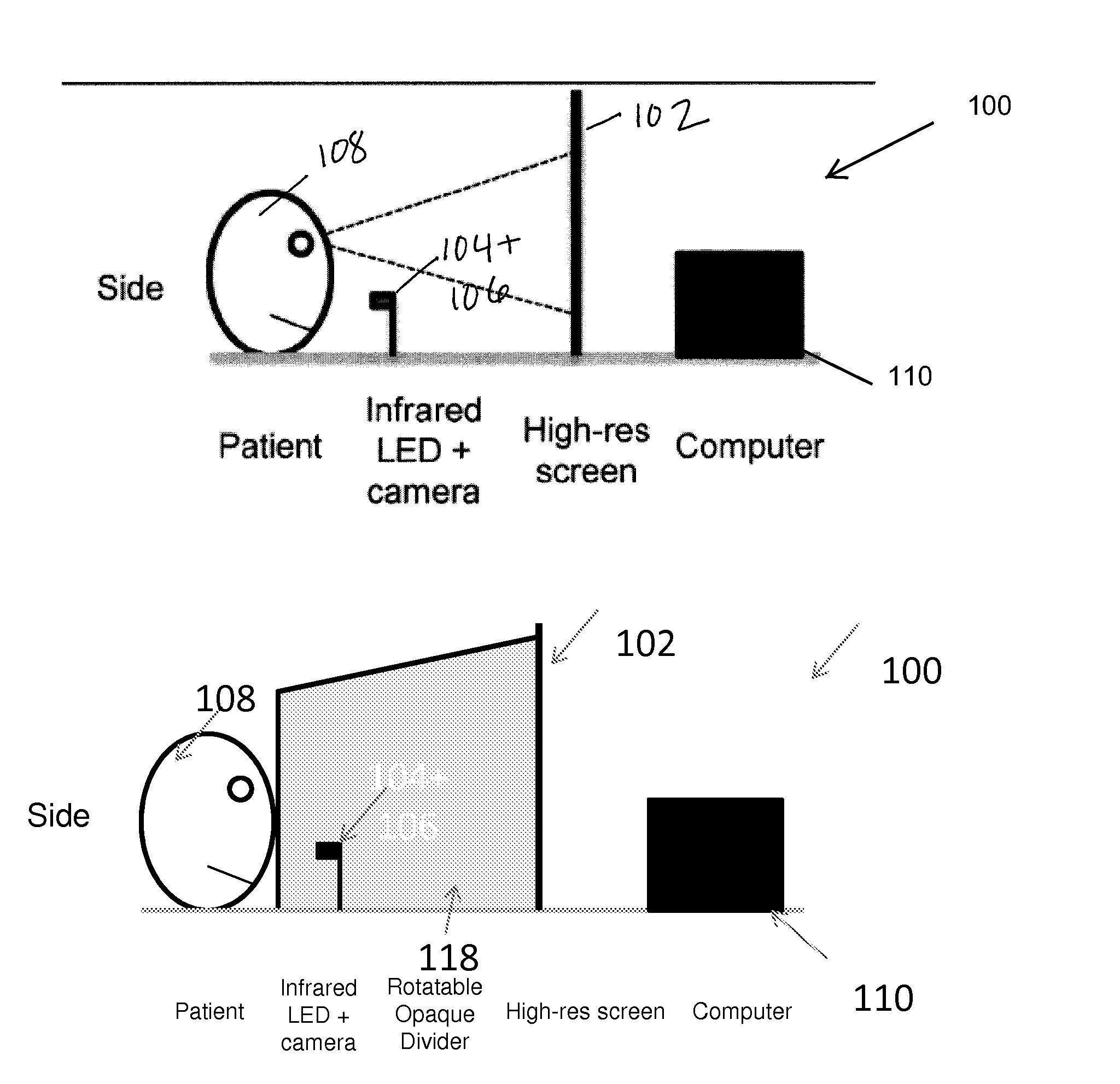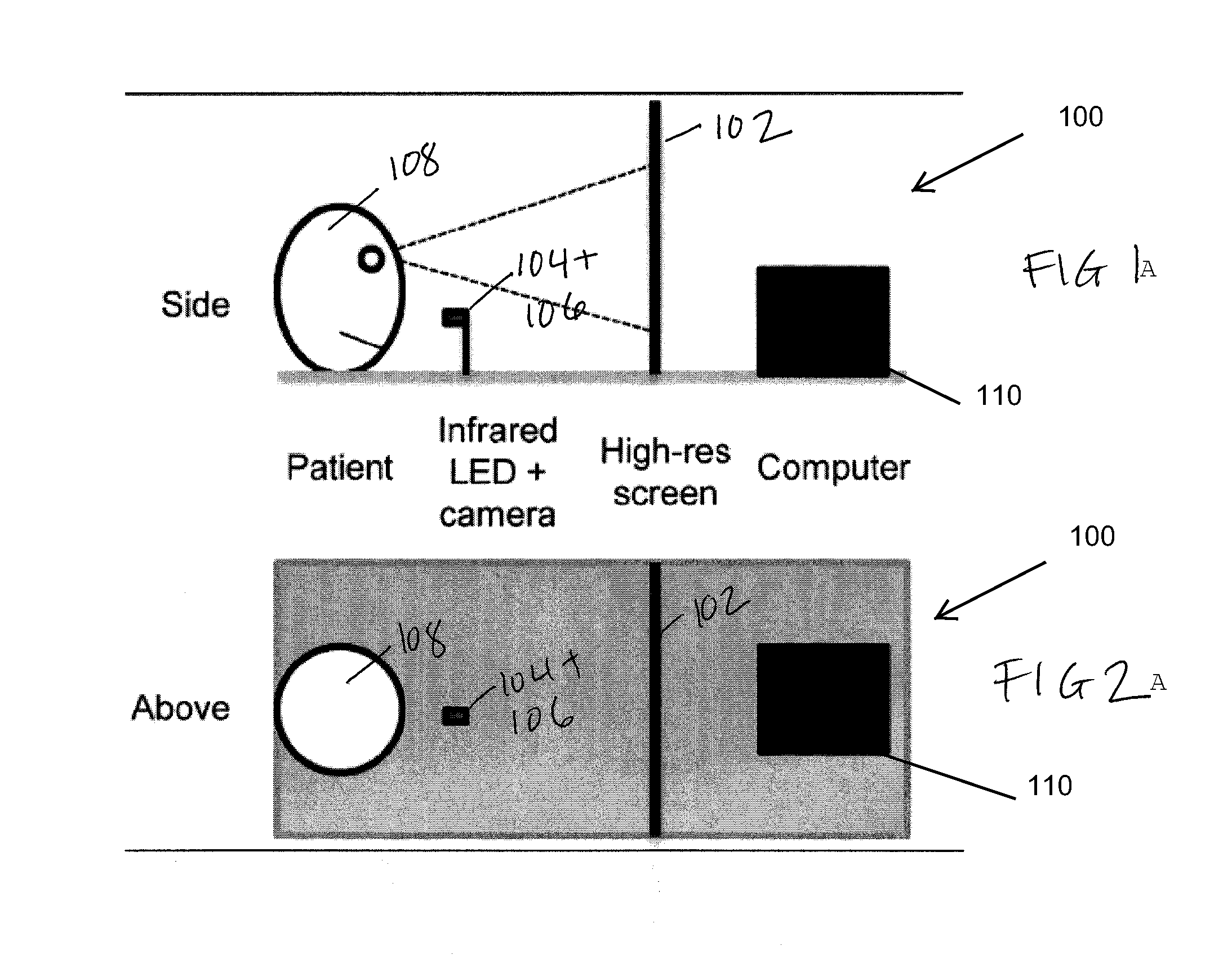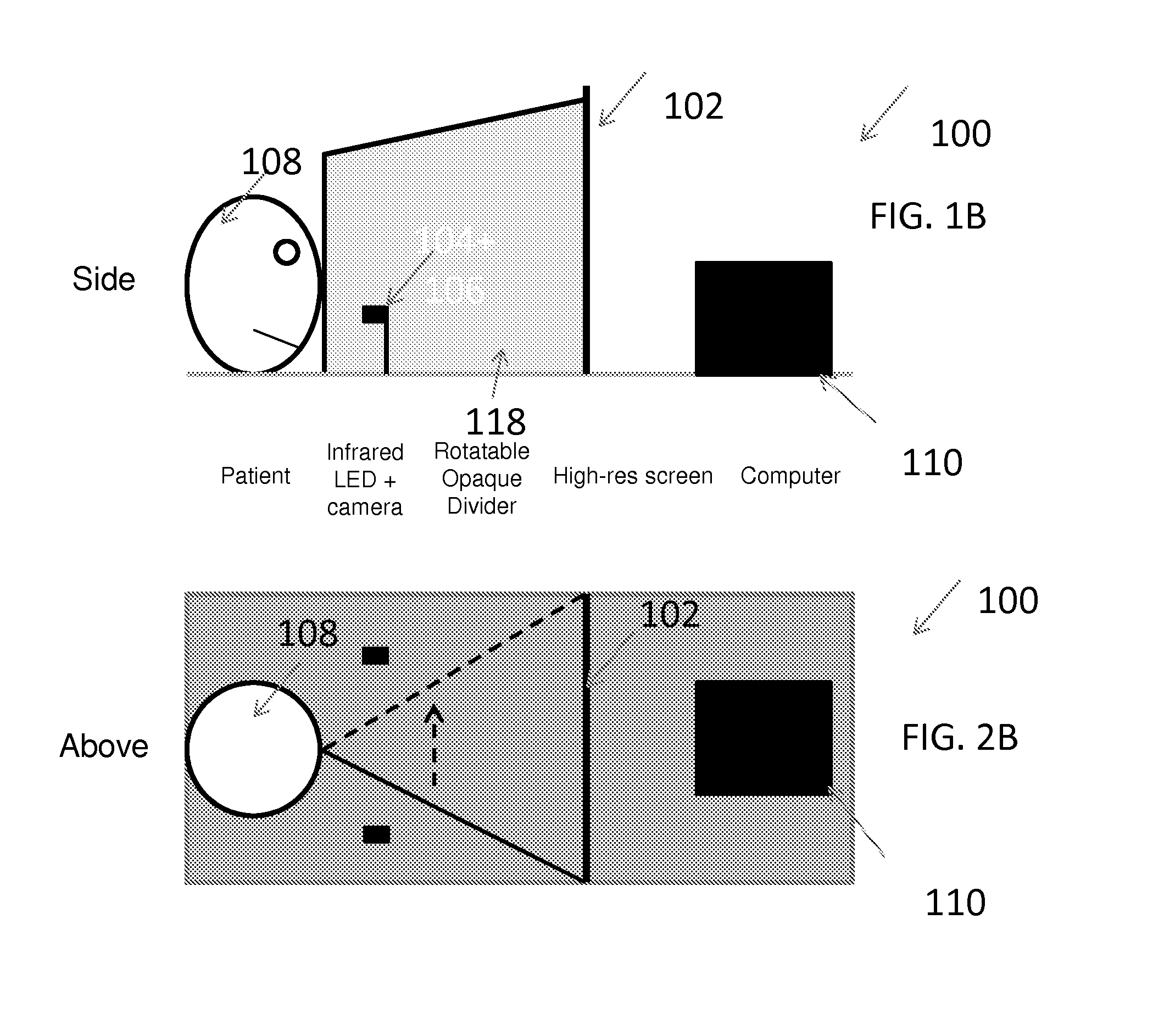System and method for evaluating ocular health
a system and ocular technology, applied in the field of visual capacity testing, can solve the problems of difficult to understand, interpret, and difficulty in physicians' deciphering, and conventional tests are not particularly applicable to test subjects who are not able, and conventional tests typically take a relatively long time to perform
- Summary
- Abstract
- Description
- Claims
- Application Information
AI Technical Summary
Benefits of technology
Problems solved by technology
Method used
Image
Examples
Embodiment Construction
[0039]The present invention is directed toward a system and method for providing a visual system diagnostic test. A visual stimulus is presented to a patient to induce the optokinetic nystagmus (OKN) or optokinetic reflex (OKR) response in the patient. Various parameters of the stimulus are modified to probe the patient's visual function (in terms of OKN sensitivity) and estimate their level of visual performance based on a variety of parameters. This estimate of visual performance can provide diagnostic information about contrast sensitivity, spatial acuity, temporal acuity, speed, or visual or retinal system functioning for patients of all types, including non-verbal humans or animals that would otherwise be unable to be diagnosed.
[0040]FIGS. 1A and 2A illustrate a testing system 100 according to an embodiment of the disclosure, which includes at least a display device 102, an illuminating device 104, and a camera 106. Patient 108 is presented with a visual stimulus 112 in FIG. 3 ...
PUM
 Login to View More
Login to View More Abstract
Description
Claims
Application Information
 Login to View More
Login to View More - R&D
- Intellectual Property
- Life Sciences
- Materials
- Tech Scout
- Unparalleled Data Quality
- Higher Quality Content
- 60% Fewer Hallucinations
Browse by: Latest US Patents, China's latest patents, Technical Efficacy Thesaurus, Application Domain, Technology Topic, Popular Technical Reports.
© 2025 PatSnap. All rights reserved.Legal|Privacy policy|Modern Slavery Act Transparency Statement|Sitemap|About US| Contact US: help@patsnap.com



